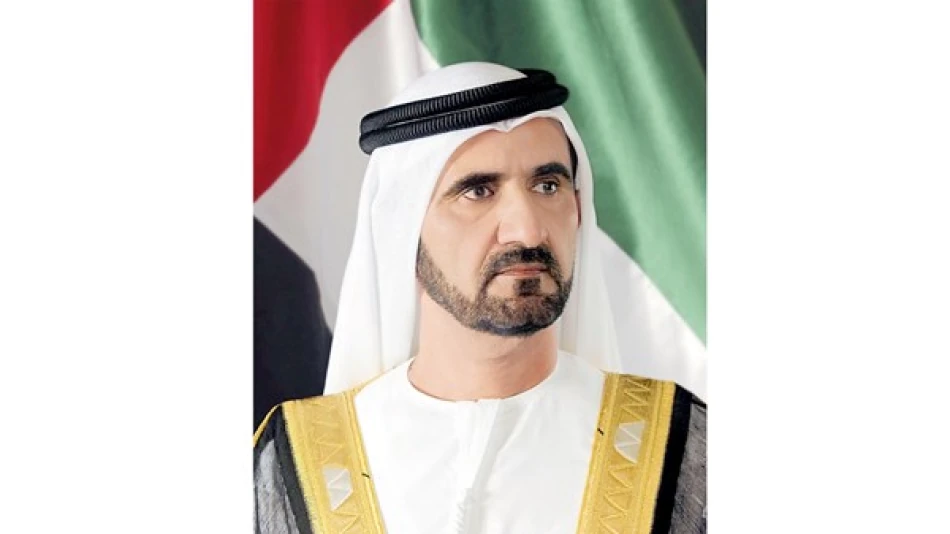
Dubai Humanitarian City Rushes Urgent Air Cargo to Aid Afghanistan Earthquake Victims
Dubai Emerges as Global Humanitarian Hub with Swift Afghanistan Earthquake Response
Dubai has reinforced its position as a strategic global humanitarian logistics center by dispatching 84 tons of emergency aid worth $920,000 to Afghanistan following last week's devastating earthquake. The operation, coordinated through Dubai Humanitarian with major UN agencies, demonstrates how the emirate is leveraging its geographic advantages and infrastructure to become the go-to staging ground for international disaster response.
Rapid Response Showcases Dubai's Strategic Vision
Under the directive of Sheikh Mohammed bin Rashid Al Maktoum, Dubai's Vice President and Prime Minister, the emergency airlift departed Dubai for Kabul carrying critical medical supplies and shelter materials. The aid package is expected to assist over 730,000 people affected by the natural disaster.
The swift mobilization highlights Dubai Humanitarian's operational model, which positions the emirate as a pre-positioned hub where international relief organizations can rapidly coordinate and deploy resources during crises.
Multi-Agency Coordination Sets New Standard
The operation involved close collaboration between Dubai Humanitarian and several key international partners, including the World Health Organization, UNHCR, the UN Humanitarian Response Depot under the World Food Programme, and UNICEF. This multi-agency approach reflects a growing trend toward centralized humanitarian logistics hubs that can eliminate coordination delays during critical response windows.
Dubai's Humanitarian Infrastructure Investment Pays Dividends
Giuseppe Saba, Executive Director and Board Member of Dubai Humanitarian, emphasized that the organization was specifically established to enable rapid international community response during crises. This Afghanistan operation validates Dubai's significant investment in humanitarian infrastructure over recent years.
The emirate's strategic location between Europe, Asia, and Africa, combined with world-class airport facilities and streamlined customs procedures, creates operational advantages that traditional humanitarian hubs struggle to match. Unlike Geneva or New York, which serve primarily as headquarters locations, Dubai offers the logistical muscle needed for actual relief operations.
Competitive Advantage Over Regional Players
Dubai's humanitarian positioning distinguishes it from other Gulf states that focus primarily on financial contributions to international relief efforts. While Saudi Arabia and Qatar typically channel aid through existing UN mechanisms, Dubai is building physical infrastructure and operational capabilities that make it indispensable to the global humanitarian system.
Long-Term Strategic Implications
This Afghanistan response reinforces several strategic trends. First, it demonstrates how middle powers can gain international influence through specialized capabilities rather than traditional diplomatic or military means. Second, it shows Dubai's continued diversification beyond commerce and tourism into sectors that enhance its global relevance.
For international relief organizations, Dubai's model offers compelling advantages: reduced response times, lower logistics costs, and simplified coordination mechanisms. As climate change increases the frequency of natural disasters, these operational efficiencies become increasingly valuable.
The UAE's humanitarian diplomacy strategy, exemplified by this Afghanistan operation, positions the country as an essential partner for Western nations and international organizations seeking effective disaster response capabilities in an increasingly unstable world.
Most Viewed News

 Layla Al Mansoori
Layla Al Mansoori






